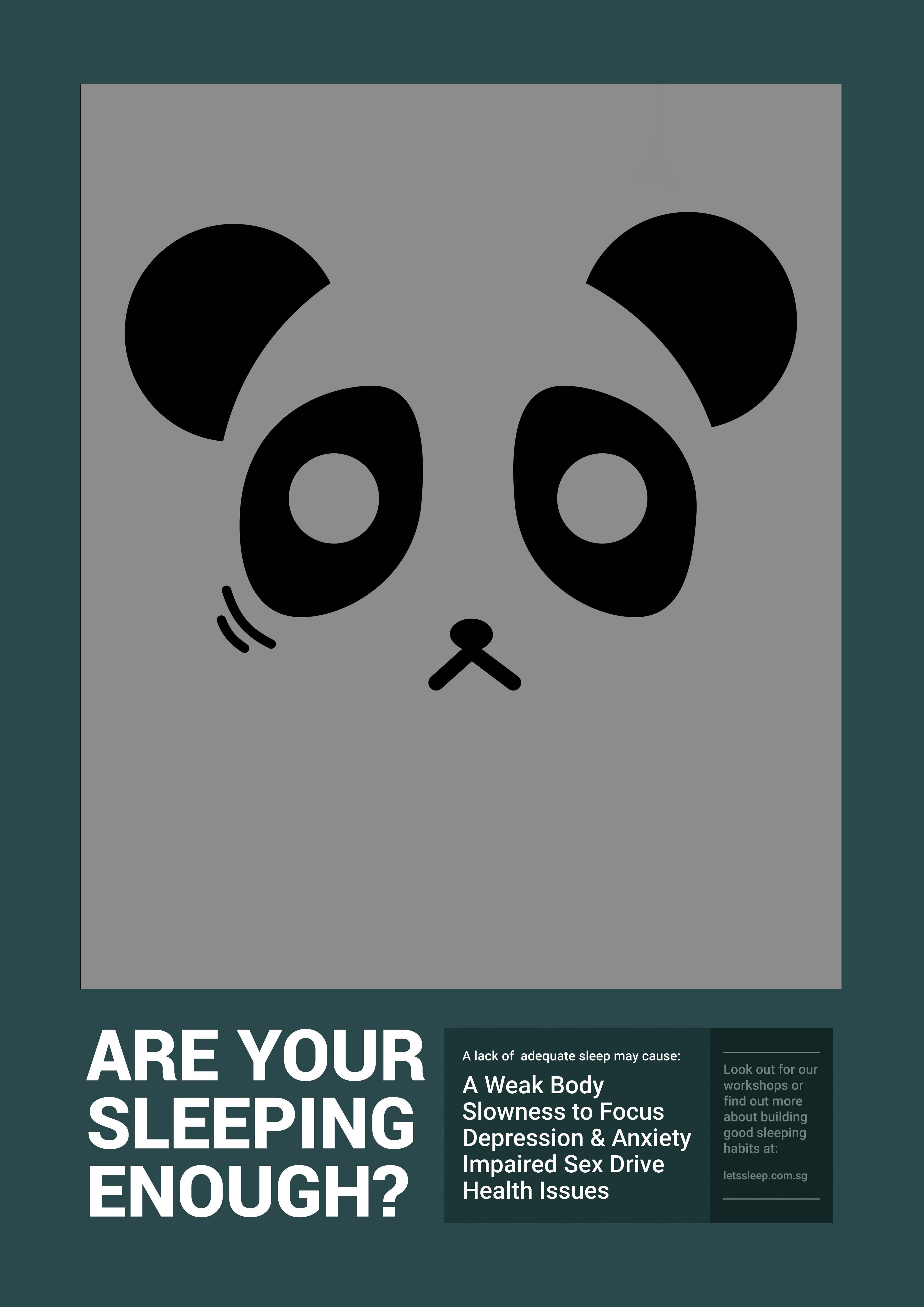







(Re-arranged to avoid the center line..)
Design Artefact 1
Poster – For raising awareness; consequences of not sleeping enough.



– Test print with reflective paper failed
– Cut/Paste on reflective paper instead

Design Artefact 2
Activity Booklet – For one to build a good sleeping habit.




Notes
https://www.ttsh.com.sg/articles/sleep-deprivation/
Dr Chong Yaw Khian, a Consultant with the Department of Otorhinolaryngology at Tan Tock Seng Hospital, addressed the issue of sleep deprivation in Singapore and its consequences.
Below I tried to summarise the content for infographic use:
1. SLOW TO FOCUS
In 2009, researchers determined that a specific type of brain wave called ‘sharp wave ripples’ is responsible for consolidating memory in the mind and occurs mostly during the deepest levels of sleep. The lack of adequate sleep may impairs attention, alertness, concentration, reasoning, and problem solving during the day.
2. WEAKENED BODY
Sleep loss can cause the body to under-produce the human growth hormone
which is usually released during deep sleep. It plays a part in increasing muscle mass, thickening the skin, and strengthening bones. It is our body’s natural way of repairing and renewing our body.
3. IMPAIRED SEX DRIVE
Sleep specialists addressed that sleep-deprived men and women have reported to have lower libidos and less interest in sex, and informed that depleted energy, sleepiness, and increased tension may be largely to blame. In a study, nearly half of the men who suffered from severe sleep apnea have secreted abnormally low levels of testosterone during the night.
DEPRESSION & ANXIETY
People diagnosed with depression or anxiety tends to sleep less than six hours at night. However, once they have adequate sleeping hours, their anxiety or depression were noted to have improved.
WEIGHT GAINING
Consistent research has shown that the lack of sleep is associated with decreases in leptin and elevations in ghrelin. Ghrelin stimulates hunger and leptin signals satiety to the brain and suppresses appetite.
PRONE TO HEALTH ISSUES
Chronic sleep loss can put you at risk for:
– Heart Disease
– Heart Attack
– Heart Failure
– Irregular Heartbeat
– Hypertension
– Stroke
– Diabetes
First Draft

Second Draft (Final)

(Re-arranged to avoid the center line..)
